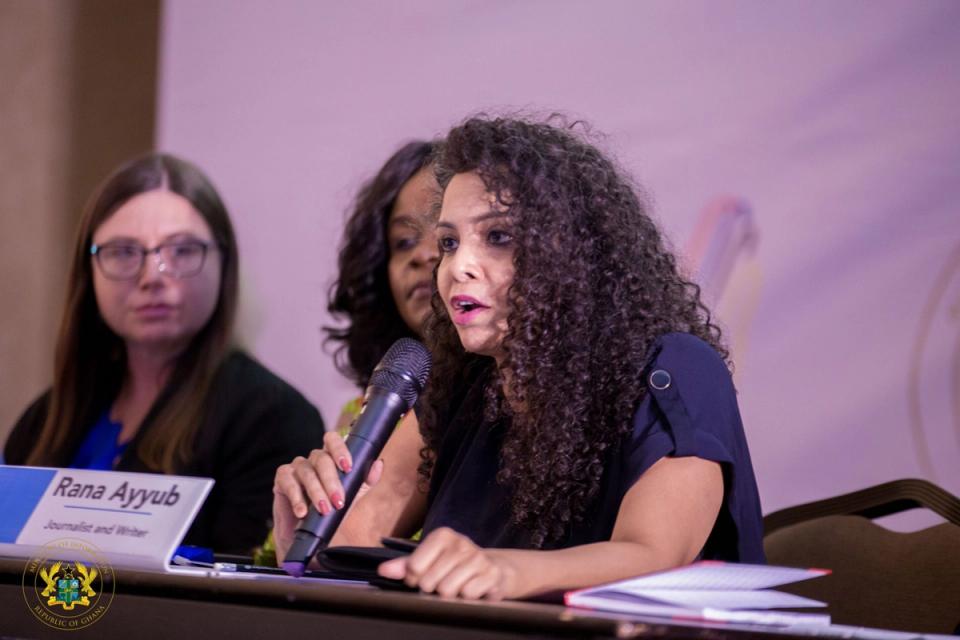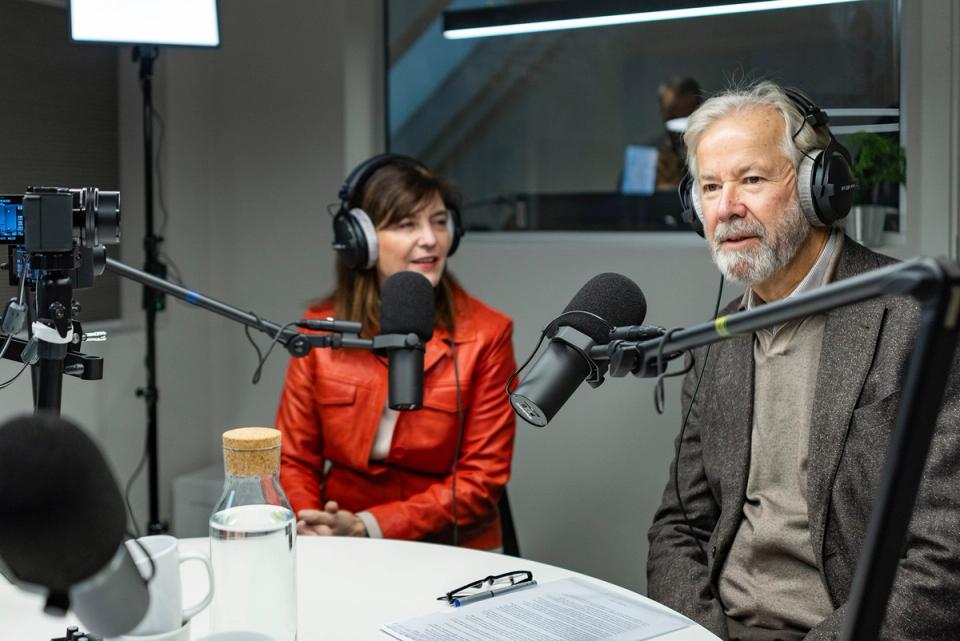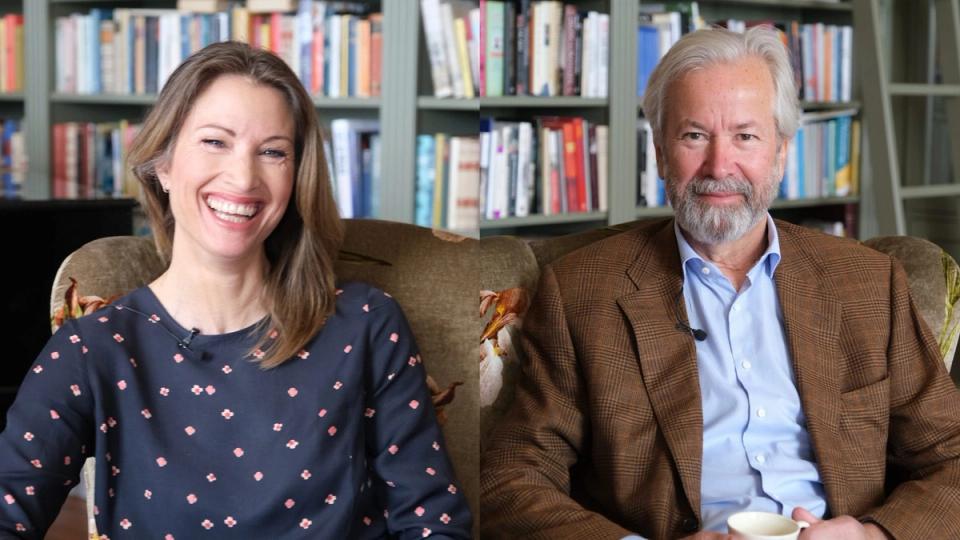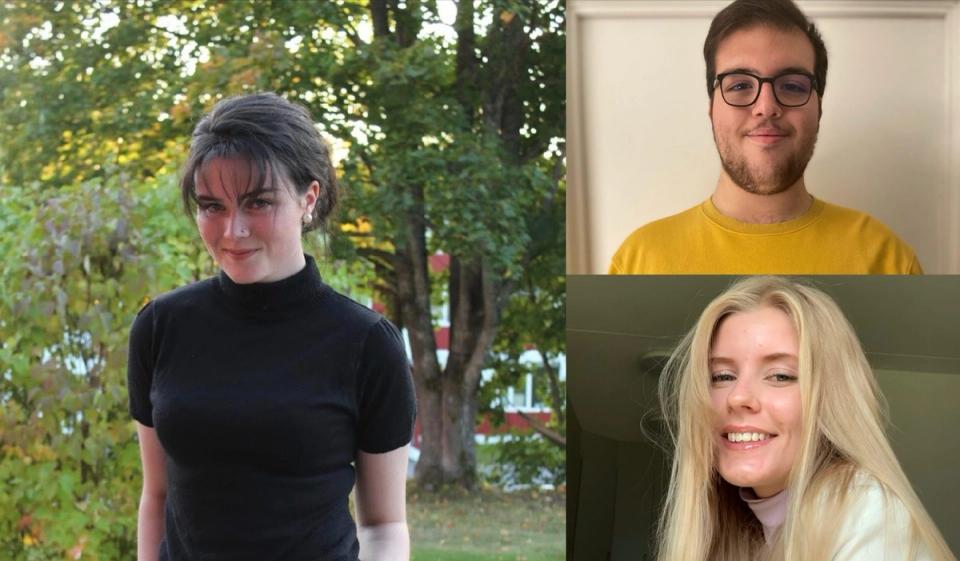5. februar 2019
The journalist: A target in social media?

[vc_row][vc_column][vc_column_text]Rana Ayyub’s work as an investigative journalist in India has not come without a price. After revealing the alarming actions […]
[vc_row][vc_column][vc_column_text]Rana Ayyub’s work as an investigative journalist in India has not come without a price. After revealing the alarming actions of the Hindu nationalist government, she was targeted by a coordinated and hateful social media campaign. In this article, Ayyub describes what she uncovered, the consequences and the global reactions.
On the 20th of April last year I was awarded the Youth icon of India by a leading magazine for inspiring a generation in the country with my journalism. I was thrilled. In a country where Press freedom was increasingly being stifled by an autocratic regime, this was a much-needed shot in the arm. What followed the next morning was a repercussion I had long anticipated.
A day later, on 21st April, I started receiving messages shaming me for an outrageous quote supporting child rapists. The quote attributed to me was posted on a twitter handle that was a parody account of one of India’s leading news channel Republic TV. The tweet went viral. Fanboys of various rightwing leaders in India and their Facebook pages translated the tweet in Hindi and circulated it all over social media. Screenshots of this tweet attributed to me were shared in thousands on multiple social media and WhatsApp groups. Few noticed that the Twitter account was a parody of the original Republic TV and the handle was notorious for attributing concocted statements of those who disagreed with the ruling dispensation.
The next day another photoshopped tweet was generated that said ‘I hate India and Indians’. The same evening a friend from the right-wing ruling party, the BJP sent me a message asking if I was aware of a scurrilous video in circulation which was being sent on various WhatsApp groups.
He was upset he said. He could have ideological differences with me, but this was outraging my modesty and asked me to have it removed before it spread like wild fire.
I was sitting with a friend in a café when he forwarded the video to me. My image was morphed on a pornographic video. I froze. I started throwing up, crying, hysterical, what had I done to deserve this?
A friend from a fact checking website who I forwarded the video said it was the work of a new artificial intelligence app called deep-fake which was being increasingly used to discredit voices.
Within hours, screenshots of the video were all over my social media, my Twitter timeline, my Facebook page, my Instagram. That same evening I was doxed, my phone number and address were made public. Exhortations were made on social media to reach my home and gang-rape me.
Every minute I got a message on WhatsApp asking for sexual favors. That video was on every third phone in India including that of my father. I was rushed to the hospital twice in a day for palpitations and high blood pressure. What did I do to deserve this trauma? Journalism.
I do not who has done this. I do not know what the motivation behind this is. But I do know that most of the handles and accounts that posted these pictures/videos called themselves fanboys of the Prime Minister, of the BJP, of a Hindu raj. I do know that some of the Twitter handles I have reported to the cybercrime in India are followed by ministers in the ruling dispensation.
I do know that three weeks before this vicious attack on me, two of my friends in the Indian intelligence claimed in good humor that they knew the exact amount in my bank account, that I ordered vegan meal on an Emirates flight to Dubai and the exact amount my father withdrew from his pensioners account every month. In September 2017 my journalist friend Gauri Lankesh, the editor of Lankesh Patrike, a regional language publication was gunned down right outside her house in Bangalore. Gauri who had also translated my book in Kannada was vocal in her criticism of the Narendra modi led BJP government.
These minds that tried to indulge in my character assassination also celebrated her death. And some of them were and continue to be followed on twitter by the Prime Minister.
I am an investigative journalist and a critic of the ruling right-wing dispensation led by Prime Minister Narendra Modi. I have been a critic of his dog-whistle politics and his tacit support to a culture of hate against minorities in India. In the year 2010 I sent the first serving Home Minister of state behind bars. Right after I went undercover as an American student in the western province of Gujarat to expose the complicity of Narendra Modi in the genocide of a thousand Muslims, while he was the provincial head of the state. For a period of eight months, I wore eight cameras on my body and interviewed the top heads of the state who exposed Mr. Modi’s role in the genocide and extra judicial murder of Muslims in the state.
My editors refused to publish these revelations citing political pressure. Journalism organizations in India looked the other way. In the year 2016 I self-published the transcripts of the tapes in the form of a book titled Gujarat Files. The book sold four hundred thousand copies in sixteen languages. News reviews in India called it the equivalent of the Watergate scandal.
I am still in the pursuit of truth and journalism that aids social justice. My journalism has rattled some of the most powerful, but each investigation has amplified the hate against me. An international publication has called me one of the most hated women in India.
In the year 2013 when I published an expose on the intelligence agencies, a similar character assassination was unleashed against me. As my investigation began to make national headlines, I had to face the horrifying experience of not being judged as a journalist, but as a Muslim. A slander campaign was unleashed against me with whispers about a CD involving me and investigating officials. A Twitter trend #RanaayyubCD was viraled with the most obnoxious insinuations made about my character.
My Muslim identity, my gender, my refusal to be a pliable journalist has made me a soft target of misogyny and abuse.
The question is; Do my critical views of a political regime justify the naked misogyny, abuse and hate that I have been subjected to?
Does my journalism justify this criminal attack on me, my family which is now susceptible to harassment now that my address is a part of public domain and hate against me has been normalized? Is a morphed pornographic video, a justified response to a journalism the majoritarian followers of the present regime find unpalatable?
Me and my fellow muckrakers from around the globe are fighting a tough battle and it is the right thing to do. These stories that we write will occupy the realms of history and hope history remains kind and objective to our struggles.[/vc_column_text][/vc_column][/vc_row][vc_row][vc_column width=”1/1″][vc_gallery el_id=”gallery-117293″ type=”carousel” medias=”1369,1383,1382″ carousel_lg=”3″ carousel_md=”3″ carousel_sm=”1″ gutter_size=”3″ carousel_interval=”3000″ carousel_navspeed=”400″ stage_padding=”0″ single_overlay_opacity=”50″ single_padding=”2″][/vc_column][/vc_row][vc_row][vc_column width=”1/1″][vc_column_text]
This article is written by Rana Ayyub, a prominent independent Indian journalist and writer. Her book Gujarat Files is an important breakthrough in Indian investigative journalism where she narrates the ordeal, process and damning revelations while undercover as a student for eight months to expose the role of the state in mass killings. At present Rana Ayyub is working as an independent journalist and columnist based in Mumbai. [/vc_column_text][/vc_column][/vc_row]



